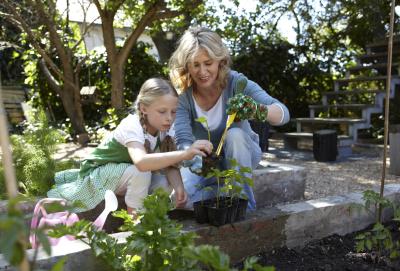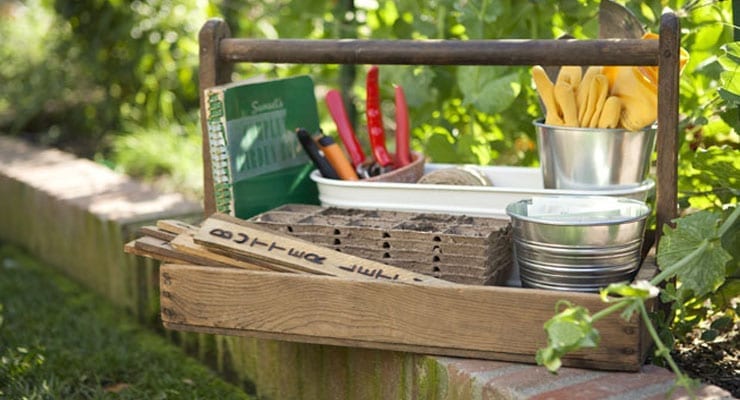Growing beautiful flowers, fruits and vegetables sometimes means battling against leaf-chomping pests and disfiguring diseases. Organic pest control involves a combination of smart planning and picking your battles in the garden. When you forgo all chemical pesticides, you may give up a few petals or a some peas in the pod, but the trade-off is a safe garden for your family and your pets.
Maximizing Garden Health
Planning your garden to minimize the spread of diseases and optimize the health of plants is a first step in organic gardening. Research which plants need full sun, partial or full shade and place them in the appropriate location in your garden. Optimizing garden health involves choosing plants that thrive where you live. Hardy plants that need winter chill and wet summers suffer in hot, arid climates; heat and sun lovers struggle where constant wet conditions prevail. Use as many native plants as possible in your garden to minimize the need for pest control. Plants that evolved in the wild have good defense mechanisms against local pests and adverse conditions.
Prevention and Maintenance
Clean up leaf litter and dried flowers from around the plants, and place them far enough apart to maintain good air circulation between them. Prevent ants from getting in your house from the garden by caulking up any cracks in the windows. Boric acid powder is a good non-toxic deterrent.
Good Bug/Bad Bug
Not all insects are bad for your garden. Encourage the natural predators who feed on harmful insects, such as aphids. Birds and insects, such as green lacewings or ladybugs, are good for garden health. Provide water and shelter for birds. Local nurseries sometimes sell live ladybugs, but they often fly away as soon as you release them. Keeping your garden insecticide-free is the best way to ensure that it is a critter-friendly zone.
Problems/Solutions
Commercially available soap solutions work well on aphid or whitefly infestations. Horticultural oil smothers the insects without the use of harmful chemicals. Making your own mixture is not difficult. Combine 1/2 tsp. regular dish soap, 1 tsp. vegetable cooking oil and 1 gallon of water. Put the mixture into a spray bottle, and coat the affected leaves with the solution. Make a mixture of 1 tsp. baking soda, 1 tsp. horticultural oil and 1 gallon of water. Spray it on plants suffering from mildew or rust, a reddish powdery fungus that damages leaves and weakens plants.
Considerations
Many garden maintenance professionals use inorganic products for weekly garden care. Talk with them about your preferences. Ask them to switch to non-toxic products and practices, or seek out companies that are more green savvy.





